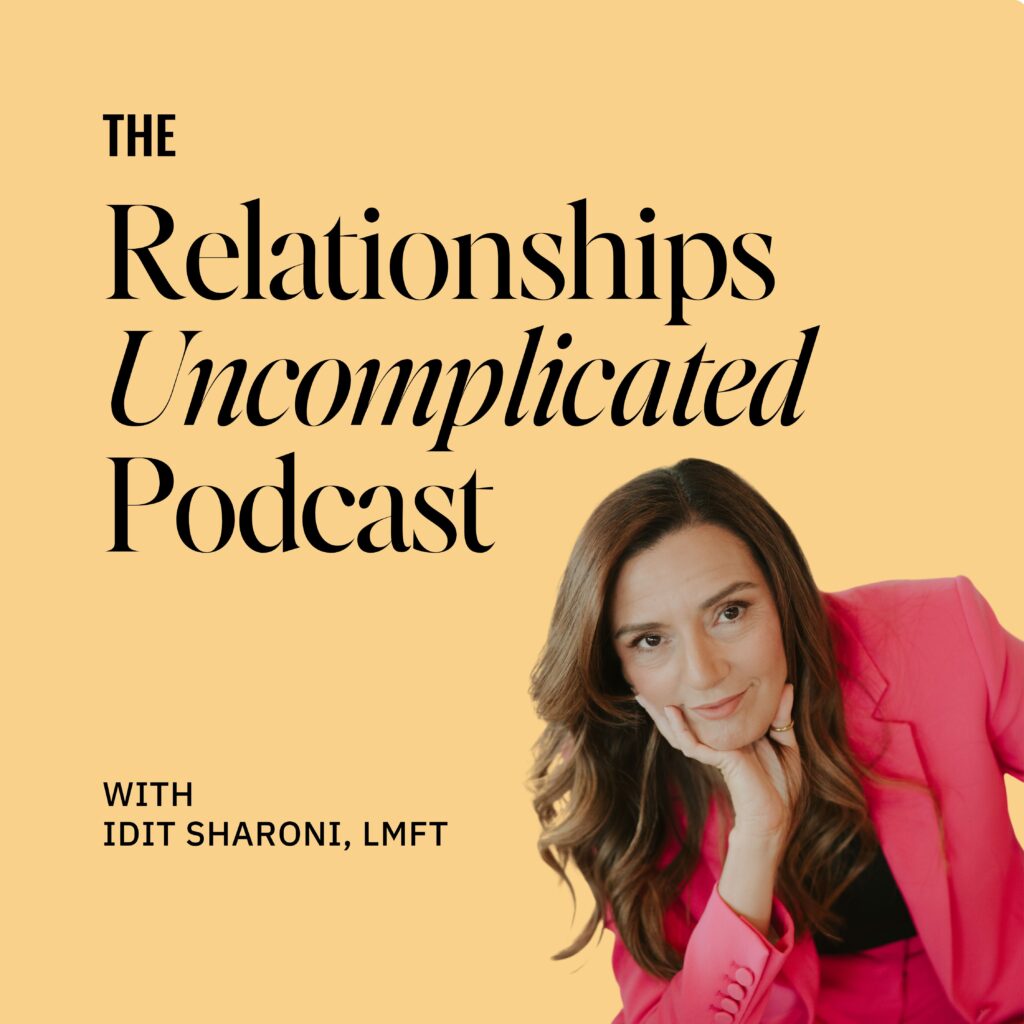This is the question that keeps you awake at night. It follows you through your daily activities. It whispers doubt in quiet moments. After the devastation of betrayal, you’re desperately seeking an answer: is full recovery even possible?
If you’ve tried to move and rebuild but you still feel stuck. You might be wondering why affair recovery fails for some couples. Is it even possible for your relationship to feel happy or good again?

Maybe you’ve made common mistakes that keep couples stuck. Perhaps you’re even questioning when to walk away after infidelity. These are all valid concerns that many couples face after discovery.
The answer to your deepest question is yes. You can fully recover from an affair. But full recovery requires specific conditions and structured work together. It’s not about returning to your old marriage—it’s about creating something stronger, more honest, and more connected than what existed before.
Through our Affair Recovery Program, we’ve guided thousands of couples through this transformation. What we’ve learned is that couples who commit to the right process don’t just survive—they often build marriages that are more resilient and intimate than they ever imagined possible.
Let’s explore what full recovery really means and how it becomes possible.
Can You Ever Fully Recover from an Affair?
Yes, many couples can fully recover from an affair and often build stronger marriages than before. However, recovery requires genuine remorse, ending all contact with the affair partner, and following a structured healing process together.
Full recovery doesn’t mean pretending the affair never happened. It doesn’t mean returning to your old relationship. Instead, it means transforming your marriage into something more secure, honest, and connected than what existed before the betrayal.
The word “recovery” is important here. We’re not talking about “getting over” the affair or “moving past” it. Recovery means healing completely, processing the trauma, understanding what happened, rebuilding trust, and creating new patterns of connection.
Many couples who have healed after affairs tell us their marriage is now stronger than it was before the betrayal. They communicate more openly. They understand each other more deeply. They’ve built safeguards that protect their connection. They’ve learned skills that many couples never develop.
This transformation is possible, but it requires commitment from both partners. It requires professional guidance. Most importantly, it requires following a proven process rather than hoping time alone will heal the wounds.
The couples who achieve full recovery share certain characteristics. They’re both willing to do whatever it takes to rebuild their marriage. They commit to working together throughout the process. They follow expert guidance even when it’s difficult. And they refuse to give up on each other.

Do Affairs Happen in Good Marriages?
Yes, affairs can happen even in strong, loving marriages. Good people in good relationships sometimes make devastating mistakes during vulnerable periods. An affair is often more about individual vulnerabilities than relationship problems.
This is one of the most important truths about infidelity that couples need to understand. Affairs don’t only happen in broken marriages. They don’t only happen when people fall out of love. They can happen even when both partners are committed to each other and generally happy in their relationship.
Understanding this removes some of the shame and confusion that surrounds betrayal. If your marriage was strong before the affair, it doesn’t mean you were living a lie. If you still love each other, it doesn’t mean those feelings aren’t real or valid.
Affairs often happen during vulnerable periods in a person’s life. Major life transitions, work stress, health challenges, or family crises can make someone more susceptible to making poor choices. These vulnerabilities don’t excuse the affair, but they help explain why good people sometimes do terrible things.
This is why the question “why did he cheat if he loved me” is so common and so painful. The truth is that people can deeply love their spouse and still make devastating mistakes. Love doesn’t make someone immune to poor judgment, selfishness, or moral failure during weak moments.
When we understand that affairs can happen in good marriages, it gives us hope for recovery. If the foundation of your relationship was strong before the betrayal, that foundation can be rebuilt and strengthened. The love that existed before the affair can be restored and deepened through the recovery process.

What Does Full Recovery Actually Look Like?
Full recovery means rebuilding trust, rediscovering intimacy, and creating a marriage that’s more honest and connected than before. Couples who have rebuilt after affairs report feeling closer, communicating better, and having deeper understanding of each other.
Whether you live in a bustling city like Sydney or a quiet suburb outside of Toronto, the isolation after an affair can feel overwhelming. But couples who have done the hard work of healing tell us they feel more connected to each other than ever before.
Couples who have successfully healed describe several changes in their relationship. They communicate more openly about difficult topics. They’ve learned to express their needs more clearly. They listen to each other with greater empathy and understanding.
How Does Fully Recover from an Affair Look Like?
These couples also report deeper emotional intimacy. They feel safer being vulnerable with each other. They’ve learned to support each other through difficult emotions. They’ve developed new ways of connecting that didn’t exist before the affair.
Even physical intimacy can become more meaningful. While it may take time to rebuild, many couples say their physical connection eventually becomes more satisfying than it was before the betrayal. This happens because they’ve rebuilt emotional safety and trust.
Trust in these marriages isn’t just restored – it’s often stronger than before. These couples have learned to be completely transparent with each other. They’ve developed new systems for maintaining connection and accountability. They’ve proven to each other that they can work through the most difficult challenges together.
Perhaps most importantly, couples who have healed completely say they feel hopeful about their future together. They know they can handle whatever challenges come their way. They’ve built a foundation that can withstand difficulties. They feel confident in their commitment to each other.
This transformation doesn’t happen overnight, and it doesn’t happen automatically. It requires structured work, professional guidance, and sustained commitment from both partners.
How Many Marriages Survive Infidelity?
Research shows 60-75% of marriages survive infidelity. However, couples who receive specialized guidance have much higher success rates, especially when both partners are committed to structured recovery work.

According to the American Association for Marriage and Family Therapy, many marriages not only survive infidelity but become stronger with proper support and intervention.
These statistics tell us that survival is possible, but they don’t tell the whole story. There’s a big difference between simply staying together and actually healing from the betrayal. Many couples stay married after an affair but never fully rebuild trust or intimacy.
The couples who thrive after affairs – not just survive – typically have several things in common. They receive specialized guidance from professionals who understand affair recovery. Both partners commit to doing whatever it takes to rebuild their marriage. They follow a structured process rather than trying to figure it out on their own.
Success rates are much higher when couples work with specialists who understand the unique challenges of healing after betrayal. General relationship counseling often isn’t enough. Couples need guidance that’s specifically designed for the aftermath of an affair.
The most encouraging statistic isn’t just about survival – it’s about transformation. Among couples who fully engage in structured recovery work, many report that their marriage becomes stronger than it was before the affair. They develop skills and intimacy that many couples never achieve.
Your success doesn’t depend on general statistics. It depends on your commitment to each other and your willingness to follow a proven process for healing.
Can You Fall Back in Love After Infidelity and Recover From an Affair?
Yes, couples can fall back in love after infidelity. The process involves rebuilding emotional safety, processing the betrayal together, and creating new positive experiences that restore intimacy and connection.
One of the deepest fears after an affair is that love has been permanently destroyed. Many couples worry that they’ll never feel the same way about each other again. These fears are understandable, but they’re not necessarily true.
Love often gets buried under layers of hurt, anger, and fear rather than being destroyed. As couples work through the trauma of betrayal and rebuild trust, those loving feelings often resurface. Sometimes they’re even stronger than before because they’re based on deeper honesty and understanding.
The process of falling back in love typically happens gradually through the recovery process. As hurt partners feel safer and more secure, they become more open to experiencing positive feelings toward their spouse. As unfaithful partners demonstrate genuine change and commitment, love has room to grow again.
This process requires more than just time. It requires actively rebuilding positive experiences together. Couples need to create new memories that aren’t tainted by the betrayal. They need to rediscover what they appreciate about each other. They need to rebuild emotional and physical intimacy step by step.
Many couples who have rebuilt after affairs say their love is now deeper and more secure than it was before. They love each other with full knowledge of each other’s flaws and capacity for mistakes. They’ve chosen to love each other through the worst possible circumstances.
This kind of love, tested by fire and rebuilt through hard work, often feels more precious and secure than the love that existed before the affair.
What Makes Recovery From An Affair Possible for Some Couples?
Recovery requires genuine remorse from the unfaithful partner, complete transparency, ending all contact with affair partners, and both people committing to structured work together. Without these foundations, healing becomes very difficult.
The first non-negotiable is genuine remorse. This isn’t just saying “I’m sorry” or feeling bad about getting caught. Real remorse means taking full responsibility for the harm caused. It means showing empathy for the betrayed partner’s pain. It means demonstrating through actions—not just words—that change is happening.

Complete transparency is equally crucial. The unfaithful partner must be willing to answer questions honestly. They must be open about their activities, whereabouts, and communications. They must willingly give up privacy in order to rebuild safety and trust.
All contact with affair partners must end immediately and permanently. There can’t be lingering connections, partial truths, or gradual endings. The affair relationship must be completely terminated before recovery can begin.
Some couples think that booking a romantic getaway to Paris or Napa Valley will magically fix their marriage. But recovery requires daily commitment and structured work, not grand gestures. It’s the small, consistent actions over time that rebuild trust and connection.
Both partners must commit to working together throughout the recovery process. This isn’t something that can be fixed by individual therapy alone. While individual support can be helpful, the core healing happens between partners with professional guidance.
Finally, couples need to follow a structured process rather than trying to figure it out on their own. Without proper guidance, couples often make mistakes that hinder their progress. They might have conversations at the wrong times, ask questions that create more trauma, or try to rush the process.
When these foundations are in place, recovery becomes not just possible but likely.
How Long Does It Take to Fully Recover From An Affair?
Full recovery typically takes 8-18 months with structured guidance, though couples often feel significant improvement within the first few months. The timeline depends on commitment level and following a proven recovery process.
One of the most common misconceptions about affair recovery is that “time heals all wounds.” Time alone doesn’t heal anything. What you do during that time determines whether healing happens or wounds continue to fester.
With proper guidance and commitment from both partners, couples often see dramatic improvement relatively quickly. Our 8-week program helps couples stabilize their relationship and begin the healing process. Many couples report feeling hopeful again within the first month of structured work.
However, full recovery – rebuilding complete trust and intimacy, typically takes longer. Most couples need 8-18 months to feel completely secure in their relationship again. This timeline assumes both partners are fully engaged in the process and following expert guidance.
The recovery process happens in stages. The first stage focuses on crisis stabilization and ensuring safety. The second stage involves processing what happened and understanding why the affair occurred. The final stage focuses on rebuilding connection and creating new patterns of intimacy.
Couples who try to skip stages or rush the process often find themselves stuck or experiencing setbacks. Those who follow the structured timeline and do the work at each stage typically see steady progress toward full recovery.
It’s important to remember that recovery is a process, not a destination. Even after full healing, couples continue to benefit from the skills and insights they’ve gained through the experience.
Does Cheating Mean the Love Wasn’t Real?
No, affairs don’t mean the love wasn’t real. People can deeply love their partner and still make devastating mistakes during vulnerable moments. Understanding this paradox is often crucial for healing.
This question goes to the heart of one of the most confusing aspects of infidelity. How can someone claim to love their spouse while betraying them in such a devastating way? The pain behind this question is enormous, and the confusion it creates can be overwhelming.
The truth is that affairs happen despite love, not because of lack of love. People are complex beings capable of holding contradictory feelings and making choices that don’t align with their deepest values. Someone can genuinely love their spouse while still being vulnerable to temptation, poor judgment, or moral failure.
This is why the question “why did he cheat if he loved me” is so common and so painful. The betrayed partner struggles to reconcile these two realities: their spouse’s expressed love and their devastating betrayal. Both can be true simultaneously, even though it seems impossible.
Recover from an Affair – Understanding This Paradox
Understanding this paradox is crucial for healing because it means the love in your relationship was real. The years of happiness, connection, and commitment weren’t a lie. The affair was a terrible mistake or moral failure, but it doesn’t negate the genuine love that existed.
For unfaithful partners, understanding this helps them make sense of their own confusing emotions. They often feel terrible guilt because they do genuinely love their spouse. They can’t understand how they could hurt someone they love so deeply. This confusion is normal and actually indicates that the love is real.
This understanding doesn’t excuse the affair or minimize the harm it caused. But it does provide hope for recovery. If the love was real, it can be rebuilt and strengthened through the recovery process.
How Does Professional Affair Recovery Work?
If you’re ready to begin the journey toward full recovery, professional guidance can help you navigate this process with confidence and clarity. You don’t have to figure this out on your own or wonder if healing is really possible.

The first step is simple but important. Schedule a consultation on our website where you’ll answer questions about your specific situation. This helps us understand your circumstances and determine whether our structured approach is right for your marriage.
During the consultation, we’ll explain exactly what our recovery process involves. You’ll understand the stages of healing and what’s expected from both partners. We’ll be honest about what the work requires and realistic about what you can expect.
If you decide to move forward to fully recover from an affair, you’ll begin our structured 8-week program that’s specifically designed for couples healing after affairs. This isn’t traditional therapy where you talk about your week and hope for the best. Instead, you’ll follow a proven roadmap that guides you through each stage of recovery.
You’ll work together as a team throughout the entire process. There are no individual sessions that could create more secrets or division. Everything is designed to rebuild your connection while addressing the underlying issues that made the affair possible.
The couples who succeed in our program share certain characteristics. They’re both committed to doing whatever it takes to rebuild their marriage. They’re willing to follow guidance even when it’s uncomfortable. Most importantly, they refuse to give up on each other.
If this sounds like you and your partner, we’re here to help. Full recovery is possible, and you don’t have to walk this difficult path alone.
About the Author
Idit Sharoni, LMFT, and her team specialize in helping couples achieve full recovery after infidelity. They’ve guided thousands of couples through the transformation from betrayal to rebuilt trust and deeper connection.
Idit’s structured approach is designed specifically for couples who are committed to healing together. Her program helps partners move beyond crisis toward genuine transformation, often creating marriages that are stronger and more intimate than before the affair.
With expert guidance and a proven roadmap, couples don’t just survive infidelity – they thrive in relationships built on deeper honesty, trust, and connection.
Comments +